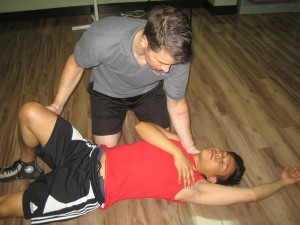Unconsciousness occurs if an individual does not to respond to stimuli and appears to be sleeping. The individual might become unconscious for a few seconds or for a longer time.
Those who loses consciousness do not respond to loud noises or shaking. The individual might cease to breathe or the pulse becomes faint. This requires immediate emergency care. The earlier the individual is given emergency care, the better the outlook will be.
What are the causes?

Unconsciousness can be brought about by major ailments or injuries or complications from alcohol or drug abuse.
The usual causes of unconsciousness include:
- Vehicular accident
- Alcohol poisoning
- Severe blood loss
- Drug overdose
- Direct blow to the head or chest
Unconsciousness can be brief if there are abrupt changes in the body. The usual causes include:
- Low blood sugar and blood pressure
- Straining
- Dehydration
- Syncope
- Hyperventilation
- Issues with the heart rhythm
- Neurologic syncope
Indications of possible unconsciousness
The signs that might indicate that unconsciousness is about to occur include:
- Slurred speech
- Abrupt inability to respond
- Confusion
- Rapid heart beat
- Dizziness or lightheadedness
First aid
If an individual becomes unconscious, these measures must be taken:
- Assess if the individual is breathing. If not, call for emergency assistance. If breathing, place on his/her back.
- Elevate the legs of the individual to at least 12 inches above the ground
- Loosen up any tight clothing or belts. If the individual does not regain consciousness in one minute, call for emergency assistance.
- Assess the airway to ensure that there is no obstruction or blockage
- Check if the individual is breathing, moving or coughing. These are indications of confirmed circulation. If these are absent, execute CPR until the emergency team arrives.
In case unconsciousness is brought about by low blood pressure, the doctor will administer intravenous medications to increase the blood pressure. If the blood sugar is low, provide candy or a glucose injection is given.
More Information / Disclaimer
The information posted on this page on unconsciousness is for learning purposes only. Learn how to properly deal with unconsciousness by taking a standard first aid course with Ottawa First Aid.
